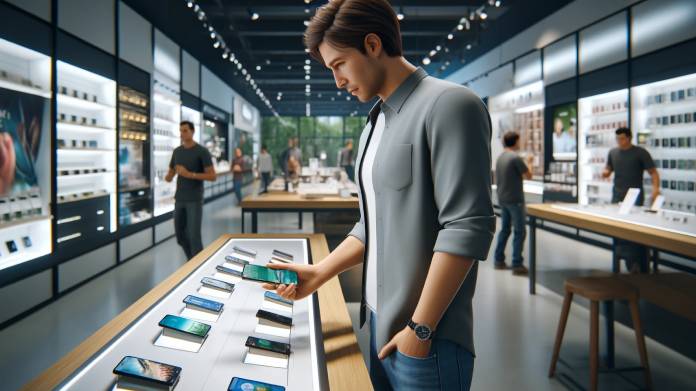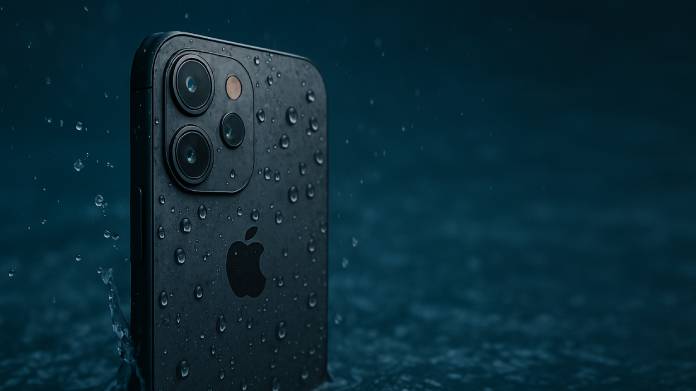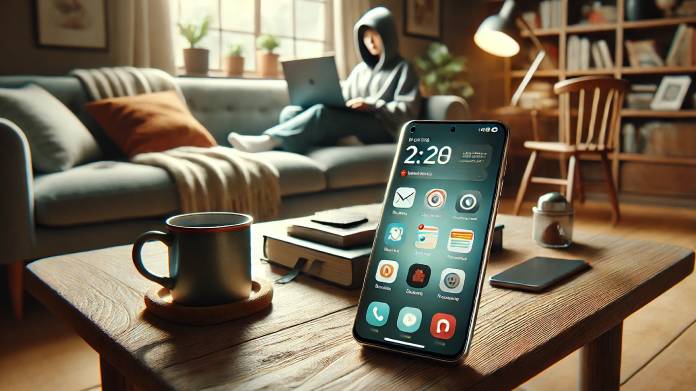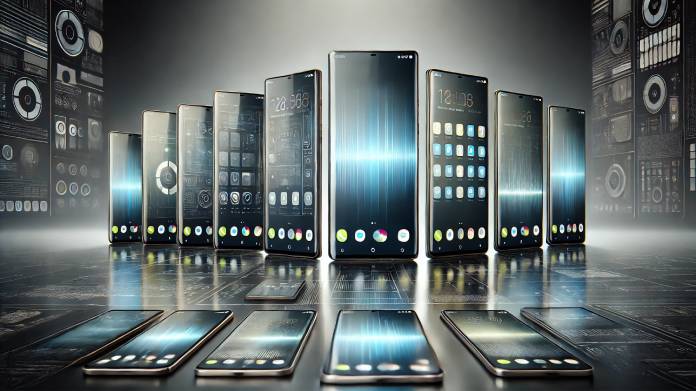
Should I Get an iPhone or a Samsung?
May 25, 2024Choosing between an iPhone and a Samsung is like picking your favorite superhero – both are powerful, but one might just suit your style a bit better. With their stellar reputations and impressive lineups, it’s easy to feel caught in a tech tug-of-war. Whether you’re a tech-savvy enthusiast or just someone who wants a reliable phone for selfies and cat videos, the choice comes down to personal preferences and specific needs. In this guide, we’ll dive into the strengths and weaknesses of each to help you make an informed decision. After all, in the iPhone vs. Samsung showdown, it’s crucial to know which side you’re on – because choosing a phone shouldn’t be as tricky as deciding between pizza toppings!
iPhone: The Apple Ecosystem

Strengths
User-Friendly Interface: Apple’s iOS is renowned for its intuitive and smooth interface. The consistency in design and functionality across all Apple devices makes the user experience seamless. This user-friendliness extends to regular users and those who may not be as tech-savvy, ensuring that navigating the phone is straightforward and enjoyable.
Timely Updates: iPhones receive regular and timely updates directly from Apple. These updates ensure your device remains secure, introduces new features, and improves overall performance. This direct line to updates is something Android devices, including Samsung, often lack due to carrier and manufacturer delays.
High-Quality Hardware: iPhones are equipped with powerful A-series chips and top-notch displays, delivering excellent performance and visual clarity. The integration between hardware and software is seamless, resulting in a device that performs exceptionally well across various tasks, from gaming to professional applications.
Camera Quality: Known for their impressive cameras, iPhones are great for both photography and videography, catering to casual users and professionals alike. Features like Smart HDR, Night Mode, and Deep Fusion help capture stunning photos in various lighting conditions.
Build Quality: Apple uses premium materials in their devices, which not only look good but also feel sturdy and durable. The design philosophy of Apple ensures that each device feels like a high-end product, adding to the overall user experience.
Resale Value: iPhones tend to hold their value better than most other smartphones. This higher resale value can be advantageous when upgrading to a newer model, as you can recover a significant portion of your initial investment.
Weaknesses
Price: iPhones are generally more expensive compared to Samsung models with similar features. This premium pricing can be a barrier for budget-conscious consumers.
Customization: iOS is less open and customizable than Android, limiting the degree to which you can personalize your device. For users who enjoy tailoring their phone’s interface and functionality to their liking, this can be a drawback.
Port Limitations: iPhones use the proprietary Lightning port, requiring adapters for some accessories. This can be inconvenient, especially for users who prefer universal standards like USB-C.
Battery Life: Battery performance can be inconsistent, especially with older models. Although newer models have improved, heavy users might still find themselves needing to charge their device during the day.
Samsung: The Android Powerhouse

Strengths
Affordable Options: Samsung offers a wide range of phones across various price points, providing affordable options with impressive features. Whether you’re looking for a flagship model or a budget-friendly device, Samsung has something for everyone.
Customization: Android’s open nature allows extensive customization, from the home screen layout to the app functionality. Users can install custom ROMs, change default apps, and tweak settings that are not available on iOS.
Display Technology: Samsung’s AMOLED displays are often superior, featuring higher refresh rates and vibrant colors. This results in better visuals for media consumption, gaming, and general use.
Battery Life: Many Samsung models boast longer battery life, capable of lasting a full day on a single charge. Features like power-saving modes and larger battery capacities enhance this further.
USB-C Port: The inclusion of USB-C ports in many Samsung models aligns with the current standard, making it easier to connect with other devices. USB-C offers faster data transfer and charging speeds compared to the Lightning port.
Weaknesses
Software Updates: Samsung phones typically receive updates slower than iPhones. This delay can affect security and access to the latest features, as updates need to go through both Samsung and the carrier.
App Ecosystem: While Android has a vast app ecosystem, some apps may appear first on iOS or have exclusive features there. This can be a deciding factor for users who rely on specific apps for work or personal use.
Build Quality: Some Samsung models may not feel as premium as their iPhone counterparts. While flagship models boast high-end materials, mid-range and budget options might use less durable components.
Resale Value: Samsung phones generally depreciate faster than iPhones. This lower resale value can make it less economical to upgrade to a newer model compared to an iPhone.
Key Considerations in the iPhone vs. Samsung Debate

Budget: Determine how much you’re willing to spend. iPhones tend to be pricier, but Samsung offers a broad range of budget-friendly options. Consider not just the initial cost, but also the long-term value, including potential resale.
Ecosystem: If you already own other Apple devices, an iPhone will integrate seamlessly with your existing ecosystem. Features like Handoff, iCloud, and Continuity create a cohesive experience across all Apple products.
Customization Needs: If you prefer a highly customizable experience, Samsung’s Android-based system might be more appealing. Android allows you to change almost every aspect of your phone’s appearance and functionality.
Camera Usage: Consider how important camera quality is to you. Both brands excel, but with slightly different strengths. Samsung often pushes the boundaries with features like high-resolution sensors and advanced zoom capabilities, while Apple focuses on color accuracy and software enhancements.
Battery Life: Evaluate how crucial battery longevity is for your daily use. If you rely on your phone heavily throughout the day, Samsung’s typically longer battery life might be a better fit.
User Interface: iOS offers a more uniform and straightforward user experience, while Android provides flexibility and customization. Your preference here will significantly influence your satisfaction with the device.
Customer Support and Services: Apple is known for its robust customer support and service centers, often providing a better service experience compared to third-party Android service centers.
Innovative Features: Samsung often introduces innovative features like foldable screens and high refresh rate displays. If cutting-edge technology excites you, Samsung’s lineup might be more appealing.
Final Thoughts
In the grand iPhone vs. Samsung showdown, the best way to choose your champion is to experience both in person. Head to a store, hold the devices, and see which feels like the right fit. Each brand offers top-tier features and a high-quality experience, but it’s your personal preferences that will be the ultimate decider.
The epic iPhone vs. Samsung battle boils down to what you prioritize in a smartphone. Whether you lean towards the polished ecosystem of an iPhone or the customizable versatility of a Samsung, both choices promise an exceptional smartphone experience. Remember, picking a phone shouldn’t be harder than deciding between a beach vacation and a mountain getaway – it should be as thrilling as finding an extra slice of pizza when you thought you were down to the crust!
At Foul Mouth Technology, we’re dedicated to keeping you up-to-date on all the latest trends and technology. We hope this guide helps you make an informed decision. Whether you opt for the iPhone’s sleek sophistication or Samsung’s adaptable brilliance, both choices offer stellar smartphone experiences tailored to meet your unique needs. The iPhone vs. Samsung debate is nuanced, but with the right insights, you can find the perfect device for your requirements. Happy phone hunting, and may the best gadget call you home!









